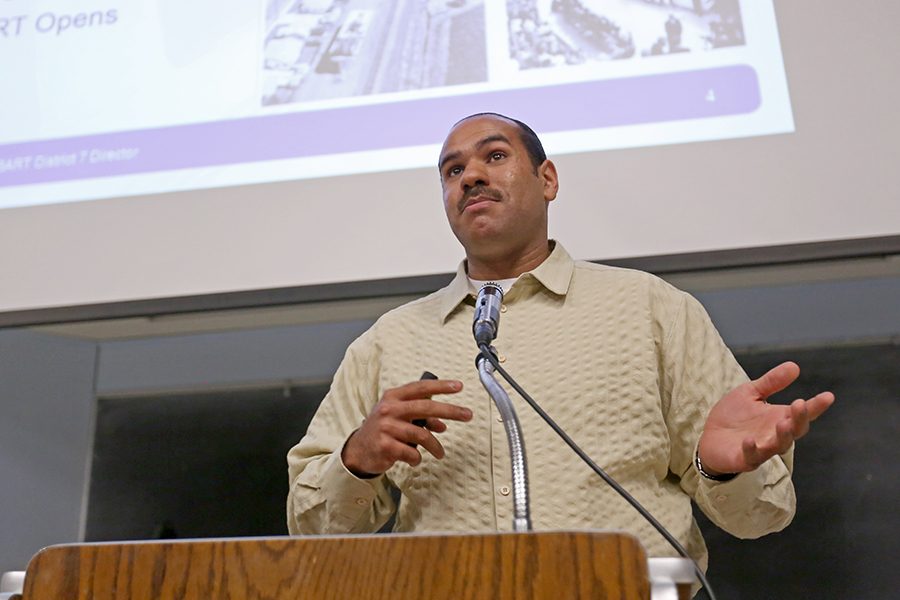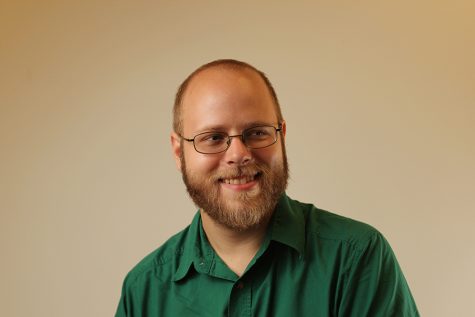BART representatives request extension of bond
Clubs publicize the necessity of an up-to-date system
BART District 7 Director Zachary Mallet speaks to students about how the transportation agency plans to refurbish and improve its outdated stations and cars in LA-100 on May 11.
May 18, 2016
BART representatives asked the community to “Reinvest in BART” to repair and update its aging systems in a presentation co-sponsored by the Community Organizing Political Action Club (COPA), and the Business Club.
Zachary Mallett, director of District 7 and government, and community relations representative June Garrett informed attendees in LA-100 on May 11 about BART’s aging infrastructure and the funding BART wants, including a half-cent sales tax.
The presentation, hosted by Dr. Joe DeTorres, the chairperson of the business department and adviser for the Business Club, started at 4 p.m. and was attended mostly by business students.
Mallett described the history of BART since its opening in 1972 and detailed how much work and funding are needed to bring BART to a “state of good repair.”
DeTorres said BART is the major transportation service in the Bay Area. Mallet said BART’s weekday ridership has swollen from around 50,000 at opening to nearly 450,000 now. BART added the 3.8 mile Transbay Tube in 1974, which Mallet said carries 22,200 passengers per hour, about one and a half times the Bay Bridge’s 14,200 per hour. In the mid-90s BART expanded greatly to cover various airports and other areas.
Mallet said, “Lots of emphasis was put on expanding infrastructure, with little planning for maintenance.” About a third of BART’s assets are at the end of their useful life. In 10 years, if nothing is done, it will be about half, he said.
Most of the fleet of 659 cars is original from 1972, Mallet said, making them the oldest of their kind in the country. The average car has seen 30.1 years of service, and 90 percent of the fleet is on the track during commute hours, increasing wear and tear.
Mallett said the Bay Area’s transportation network would fail without BART. Traffic delays on Interstate 80 would become 2.5 times longer.
Mallett said BART needs a total of $9.6 billion to fund the most essential maintenance and expansion. BART has “pried loose” $4.8 billion, leaving a $4.8 billion gap that taxpayers would need to close. BART is hoping a $3.5 billion bond measure will pass this year. The remainder will come from the Transportation Expenditure Plan that, if it moves ahead, will impose a half-cent sales tax for the next 30 years to pay for various transportation related issues.
Mallett said BART’s plan is underway, as 775 cars are on order and the first of 10 test cars has already arrived. The new cars are better designed, quieter, have screens to display information and automated station messages.



